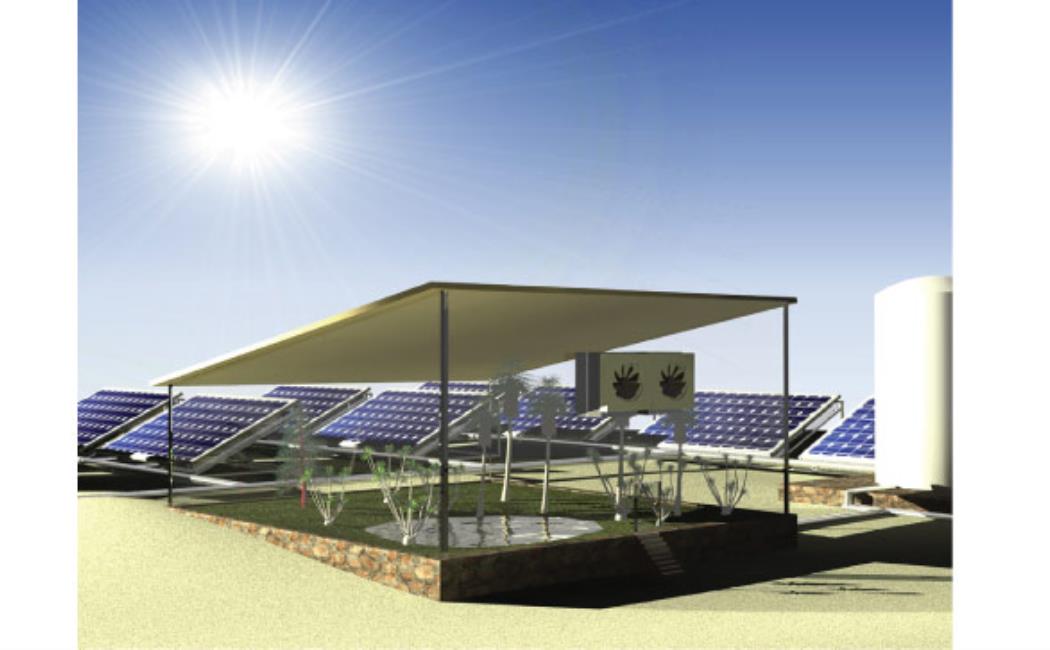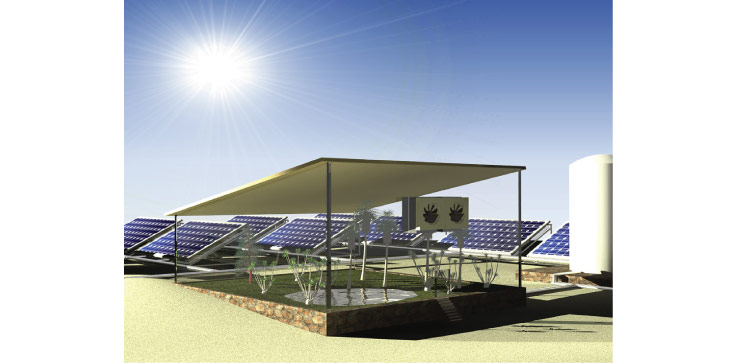


06 March, 2022

The major challenge for food production in arid and semiarid areas remains the lack of water resources. While there is no shortage of sunlight to power solar panels in these regions, photovoltaic cells also generate vast amounts of heat that reduce their energy efficiency.
KAUST researchers are addressing these issues with an integrated approach that uses atmospheric water vapor to produce fresh water for crop growth and also to generate cooling power for PV cells, thus improving their performance.
Postdoc Renyuan Li and colleagues have invented a novel system that can coproduce water, electricity and crops in most regions, including arid and semiarid areas.
“We believe this system can contribute to the global water-energy-food nexus, generate electricity and produce water for remote and off-grid communities," says Li.
Fully solar energy driven, the system employs atmospheric water-harvesting material to capture water vapor from the air, typically at night or in the evening, and recycles the waste heat from PV panels during the day to produce fresh water. It also enables greater flexibility by offering two easily switchable modes: PV cooling and water-crop-production.
Read the full story.